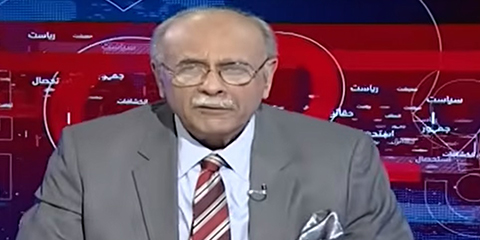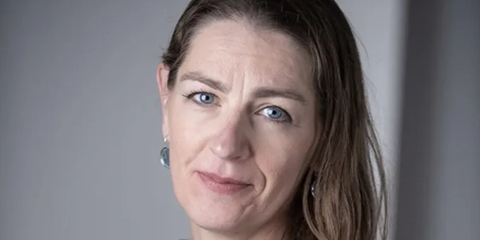Razia Bhatti (1944-1996)
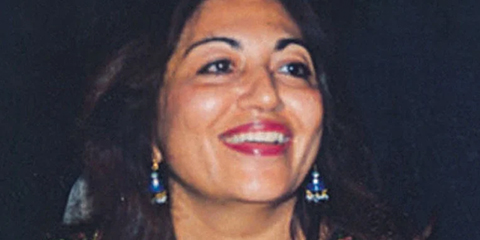
Razia Bhatti has been described as a crusader, a torch-bearer, and a symbol of courage. In 1996, the Pakistan Press Foundation called her untimely death at the age of 52 an "end of a golden chapter of journalism in Pakistan."
For those who attempted to silence Pakistani press, Razia was undoubtedly a force to be reckoned with during her almost 30-year long journalistic career. Despite constant harassments and threats to her safety, she wrote bravely on issues ranging from women’s rights to political corruption.
She nurtured two of Pakistan’s leading English language publications, as Editor of the Herald for 12 years and then of Newsline for another eight. In 1994, less than just two years before her death, Razia was a recipient of the “Courage in Journalism” award from the New York-based International Women's Media Foundation.
Razia first entered professional journalism in 1967 when she joined The Illustrated Weekly of Pakistan after completing her Master's degree in English and Journalism from Karachi University.
The lifestyles magazine she joined was later renamed Herald and turned into a monthly publication reporting on current events and political issues. In 1970, Razia became the Assistant Editor of Herald and then became Editor in 1976.
Shortly, thereafter, General Zia-ul-Haq took over the country in a military coup. A period of repression and censorship followed as Zia used religious fundamentalist rhetoric to strengthen his grip on power.
Not one to be easily intimidated, Razia continued her valiant reporting. Gen Zia once got so infuriated that he waved a copy of her article at a press conference and said he would not tolerate such journalism.
Since early in her history, Pakistan has had the misfortune of being run, democratically or undemocratically, by corrupt or self-seeking politicians and feudal. Little economic progress has been made and the literacy rate remains among the lowest in the world. The result has been an atmosphere where corruption, bigotry, and intimidation of press and human rights activists are the norm. To speak up against injustice and the ruling elites in such an environment is no small achievement. Razia did just that.
When pressured to curb her writing and support the policies of Gen Zia's regime, Razia resigned from the magazine on an ethical stance. Most of her team of journalists resigned with her and together they established a new current affairs magazine called Newsline.
In July 1989, the first issue of Newsline was published with an editor’s note written by Razia which began, “Forty-two years down the road from independence, this nation seems to have bartered away the promise of its birth. To a whole generation of Pakistanis, fear, violence, authoritarianism and deceit represent the norm, for they have known no other.”
Newsline which started on a meager budget, under Razia’s editorialship, soon became a competitor to other well-known English language publications like the Herald itself. Newsline covered a wide range of stories including drug trade, corruption by politicians and financial institutions, religious persecution, and abuse of women’s rights.
In December 1994, Newsline published a story about then Prime Minister Benazir Bhutto’s inaction in stopping the rampant riots, killings, and looting which became daily occurrences, terrorizing the population of Karachi, one of Pakistan’s largest cities.
Benazir responded to this criticism by banning Newsline from all Pakistan International Airline flights. This action of the government did little to quiet the Newsline journalists and in the months that followed, Razia and her staff continued reporting on the flaws of Benazir’s government.
Even after she received international recognition, the Pakistani politicians did not stop harassing her when she exposed their misuses of power. In August 1995, police raided Razia’s home in the early morning hours demanding her appearance at the police station regarding a criminal case filed against her.
The case was brought about by then Sindh Governor, Kamal Azfar, in retaliation for a story published about him in Newsline. The news of the raid on Razia’s house resulted in protests from journalists and human rights activists from across the country, following which Kamal Azfar retreated and completely withdrew all charges against Razia and the journalist who wrote the story.
In the first issue of Newsline Razia wrote, “The press in Pakistan shares the guilt of this nation’s state. It has been silent when it should have spoken, dishonest when it should have been forthright, succumbed when it should have stood fast.”
Razia used her pen to fight oppression and this constant battle eventually took its toll on her. She died of a brain hemorrhage in 1996.
Source: Jazbah Magazine
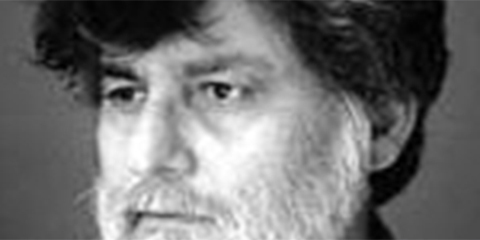
Zafaryab Ahmad (1953-2006)
Zafaryab Ahmad (1953-2006) was a journalist who made a name for himself as a trade unionist and a political activist. He worked in the dailies Dawn and the Frontier Post and the weekly Viewpoint.
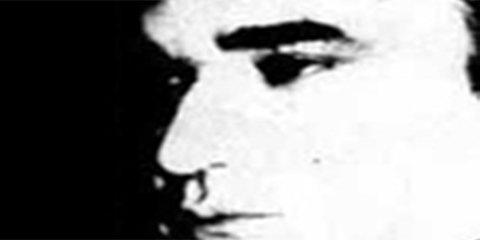
Yusuf Lodhi (Vai Ell) (1938-1996)
Yusuf Lodhi, an accidental but acerbic cartoonist, who introduced a new form of political caricature in Pakistan, joined the world of journalism in 1969 as assistant editor of Peshawar Times.
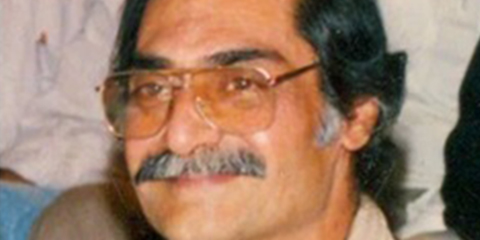
Yawar Hayat (1943-2016)
Born on October 18, 1943, Yawar Hayat is celebrated as one of the chief architects of Pakistan Television (PTV). The son of Brigadier Azmat Hayat Khan, he was the grandson of Sir Sikandar Hayat Khan

Asaf Jilani
Asaf Jilani was born in Aligarh in 1934. He got his primary education at Jamia Millia Islamia in Delhi where Dr. Zakir Hussain was Shaikh ul Jamia. Dr. Hussain later became the third President of
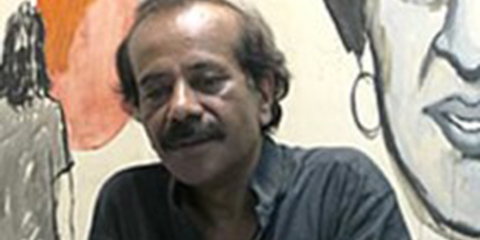
Rafique (Feica)
Born in 1957 in Multan, Feica started his schooling there, but could never take to studies. According to him, he was "only interested in drawing". He credits his father for allowing him to pursue his dream
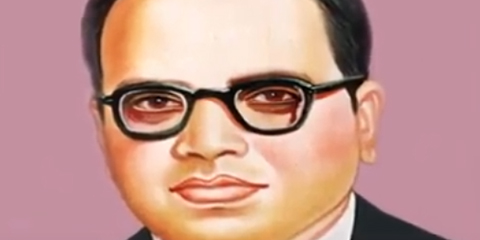
Hameed Nizami (1915-1962)
Hameed Nizami was an eminent journalist. He was the founder of the Urdu newspaper Nawa-i-Waqt, and played an important role in the Pakistan Movement. He was born on October 3, 1915 at Sangla Hill

Safdar Mir (1922-1998)
Born in Lahore, Mohammad Safdar Mir was respected and feared for his encyclopedic knowledge, making his mark as a poet and playwright. He acted on stage in both Bombay and Lahore

Zakir Hussain Syed (1939-2013)
Zakir Hussain Syed, affectionately called Zak, was an internationally renowned sports administrator, broadcaster and journalist. Born in the town of Sialkot on November 1, 1939, Zakir had his initial schooling at Rawalpindi's Denny's High School.
Newsroom

Japan anti-espionage law plan raises media freedom fears
December 14, 2025 Japan plans fast-track anti-espionage and secrecy laws, prompting warnings from legal experts and press advocates that broad rules could chill journalism and weaken source protection.

Washington Post AI podcast sparks accuracy concerns
December 13, 2025 Washington Post launches an AI-personalized podcast that permits user customization but faces staff and industry criticism over accuracy mistakes and journalistic integrity in early rollout.
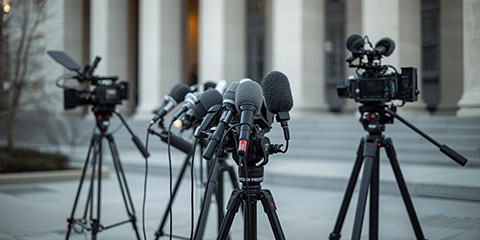
Pope warns Italian intelligence against smearing journalists
December 13, 2025 Pope Francis warns Italian intelligence to avoid smearing journalists and respect confidentiality, amid concerns over spyware, leaks, and surveillance targeting reporters and rights defenders.
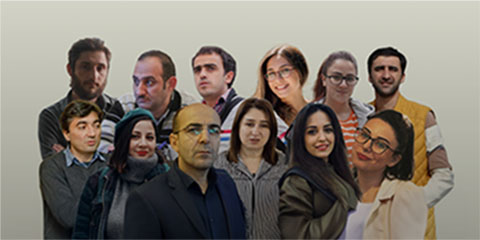
Trial of Meydan TV journalists opens in Baku
December 13, 2025 Trial proceedings against Meydan TV journalists have opened in Baku, raising concerns among press freedom groups about pressure on independent and foreign-funded media outlets.
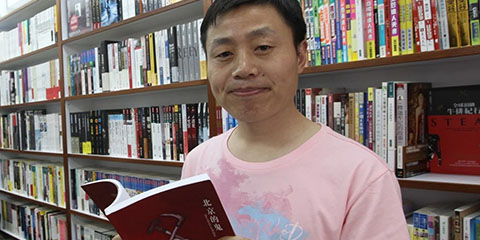
China charges journalist Du Bin under public order offense
December 13, 2025 China has formally charged veteran journalist and documentary maker Du Bin with picking quarrels and provoking trouble, a public order offense critics say is used to silence media.





